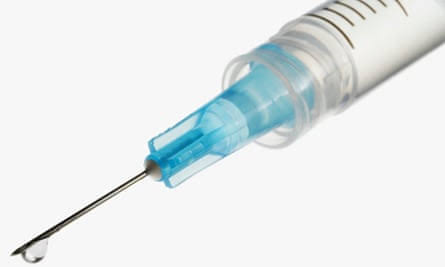A retrospective observational study has found that individuals who received the tuberculosis-preventing BCG vaccine were less likely to report COVID-19 symptoms and less likely to have antibodies in their blood against the infection.

More than 100 years ago, scientists created the BCG (bacillus Calmette-Guérin) vaccine to protect against bacterial tuberculosis (TB) infections.
By 2004, about 100 million children a year were receiving the vaccine, according to the World Health Organization (WHO).
BCG is approved in the United States for individuals at high risk of developing TB and for the treatment of certain types of bladder cancer.
But research also indicates that early-life BCG vaccination can reduce infant mortality by up to 45 percent, primarily through reduced susceptibility in infants, respiratory infections, and fever to sepsis (blood poisoning).
There is also some evidence in adolescents and older individuals that BCG protects against viral respiratory infections.
The vaccine primes the “innate immune system, the first line of protection of the body against viruses and other invading organisms, scientists say. Innate immunity rarely targets specific pathogens that the body has experienced in the past, unlike adaptive immunity.
Researchers at the Los Angeles, CA, Cedars-Sinai Medical Center wondered if BCG could decrease susceptibility to SARS-CoV-2, the virus that causes COVID-19.
“We were interested in studying the BCG vaccine because it has long been known to have a general protective effect against a range of bacterial and viral diseases other than TB, including neonatal sepsis and respiratory infections,” says co-senior author Dr. Moshe Arditi, director of the Pediatric and Infectious Diseases and Immunology Division at Cedars-Sinai.
In The Journal of Clinical Investigation, the team published their outcomes online.
COVID-19 symptoms and antibodies
6,201 healthcare workers provided blood samples and answered questions about their medical history between May 11 and June 18, 2020, including whether they had received BCG and vaccines against two other bacterial infections and influenza.
In total, 1,836 indicated that they had received the vaccine against BCG, 4,275 indicated that they had not received it and 90 were uncertain.
Those who were vaccinated were less likely to report COVID-19 symptoms at any point in the past 6 months.
Overall, SARS-CoV-2 antibodies tested positive for 3.5 percent of the entire cohort.
2.7 percent tested positive among those who reported receiving the BCG vaccine, while 3.8 percent tested positive among those who claimed they had not received it.
“It appears that individuals vaccinated with BCG may have either been less sick and thus produced fewer anti-SARS-CoV-2 antibodies, or may have developed a more effective cellular immune response to the virus,” says Dr. Arditi.
The BCG vaccine, but none of the other vaccines, was still associated with a decreased risk of testing positive for SARS-CoV-2 antibodies after adjusting for age and sex.
In their paper, the researchers write:
“Taken together, these results indicate that a history of BCG vaccination confers a nonspecific protective effect against infection with SARS-CoV-2 and decreases the presence of self-reported COVID-19 symptoms. This appears to be specific to BCG, as [other vaccinations] […] are not associated with similar protection against infection with SARS-CoV-2.”
Self-reported vaccination history
One of the limitations of the research was that it depended on the recollection by participants of which vaccinations they had received, and whether in the previous 6 months they had encountered typical COVID-19 symptoms.
In addition, the numbers were relatively small in each group that exhibited symptoms or tested positive, reducing the statistical strength of the analysis and the reliability of its results.
It is important to note, however, that those who reported obtaining the BCG vaccine were on average, older. They were also more likely to have diabetes, cardiovascular disease, hypertension, and chronic pulmonary obstructive disease.
These are all variables that increase the chances of a person contracting a serious infection of COVID-19.
Another observational research was published in August 2020 by Medical News Today, which indicated that countries with mandatory BCG vaccination had a degree of ‘herd immunity’ against the disease.
There are currently 22 clinical trials evaluating the potential of BCG for COVID-19 prevention or treatment, which could provide more conclusive evidence. In one of the tests, Dr. Arditi and Cedars-Sinai are involved.
Dr. Arditi explains that no one thinks that BCG would be more successful than specific vaccines for COVID-19. But if the trials show its worth, BCG could be easily accepted and rolled out for this application as a well-established vaccine.
“It is a potentially important bridge that could offer some benefit until we have made widely available the most effective and safe COVID-19 vaccines,” he says.





